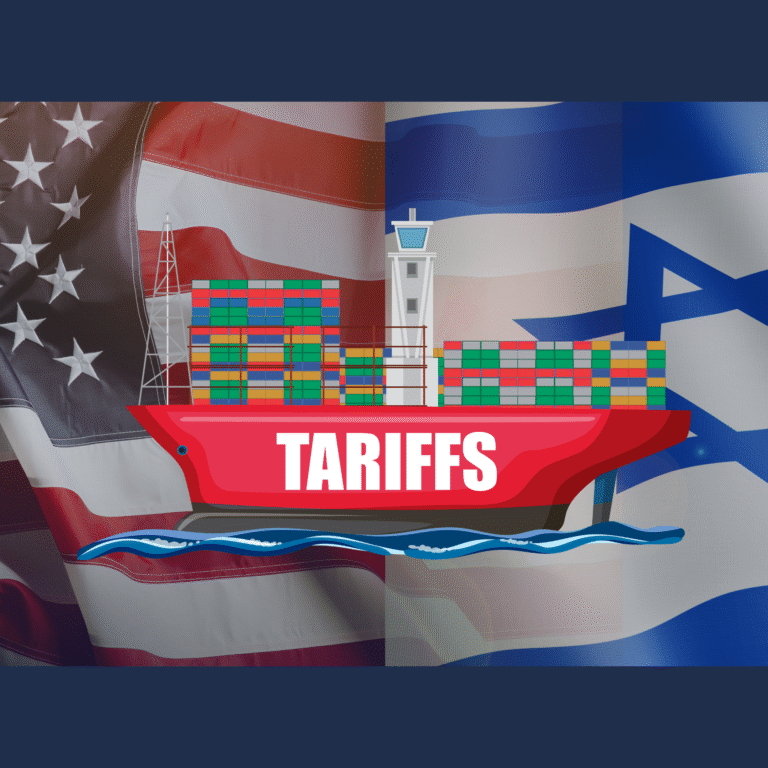

As 2023 is ending, it’s more important than ever to start your year-end tax planning. One may consider several strategies to reduce one’s taxes.
These may include:
- Maximizing contributions to tax-free retirement accounts, such as 401k plans or Individual Retirement Accounts (IRAs).
- Charitable contributions,
- Increasing allocation to tax-free investments such as municipal bonds.
- Tax loss harvesting.
We will focus today on this last category, which deals with how to offset tax losses with tax gains and vice versa. At the end, we will discuss how this applies to US expats or those relocating to Israel.
Before we get started, we’ve written these blogs about moving to and living in Israel which you may enjoy.
What to do when you get kicked out of your US brokerage account
Can one use a US Power of Attorney in Israel, (and vice versa)?
Checklist for moving to Israel
Financial planning for US citizens living abroad
Selling a house in Israel as a US citizen
Why US Expats should look before they leap into a Roth 401k
Compliance with reporting of foreign assets: tips for US expats to avoid stress
What expats need to know about Brokerage Accounts for non-US residents
And now let’s get into the blog!
Tax income from Loss Harvesting – What are Tax Offsets?
This is relevant only for taxable accounts, as buying and selling within retirement accounts is a tax-free activity.
Let’s start with the basics: what is a tax offset?
If you have invested your taxable accounts in investments such as stocks, bonds, and/or mutual funds that have been underperforming, these assets may be candidates for tax loss harvesting to lower your overall tax liability. By selling these assets at a loss, one can apply these losses against realized capital gains in one’s portfolio, thereby reducing your tax burden. This is a critical part of year-end tax planning.
When one’s yearly realized capital losses are greater than capital gains, The IRS allows for up to $3,000 in losses to offset interest and dividend income. This is a tax offset.
Wash Sales
If one sells a security at a loss, then one must wait thirty days to purchase it once again, Otherwise, the realized tax loss may be disallowed. This is called a wash sale and avoiding these is another reason why year-end tax planning is so important to do
The wash rule does not apply to securities that are sold at a profit. Therefore, let’s take the following example,
One sells Stock A at a loss of $500. One has an unrealized profit in Stock B also of $500. One may sell Stock B, offset the profit and loss, and purchase back Stock B immediately. The current price of Stock B will be the new cost basis and reduce future taxes.
Tax Loss Carryforward
In the event you have a realized loss in the current calendar year but are unable to offset it with a capital gain, one may carry the loss forward to future years until one is able to utilize the tax loss.
Year-end tax planning is not for the faint of heart
The market is unpredictable, and while tax offsets may be beneficial, they should be managed with diligence, care and consideration of your financial portfolio as a whole. By consulting with your financial and tax professionals, one can maximize this method in year-end tax planning, especially as a US expat living in Israel.
US expats in Israel are exempt from paying taxes on their overseas investment portfolios for their first ten years of residence. They can still benefit from tax loss harvesting on their US taxable assets, and in some case may be able to offset gains and losses between their US and Israeli assets.
However, it is important to keep in mind that if the loss is from a sale is outside of Israel, it will first be offset by the sale of assets outside of Israel.
Moreover, once your ten-year period is up, you are not able to utilize unused US loss carryforwards. Hence, we recommend speaking to financial planners and CPAs that specialize in expat finances to help navigate this potential in your portfolio.
Financial advice for US expats in Israel
We are expat financial advisors located in Israel and the US, serving expats globally.
If you are moving to Israel or another country and don’t know where to start when it comes to the financial side of things, or hold US or foreign assets and need help figuring out your retirement as an expat, please contact us.
Have questions about retiring in Israel? We’re having a series of webinars in 2024 on this topic. We’re also publishing blogs on this subject.
JOIN the newsletter list here to stay informed.
Sources
Henricks, Mark. (30 May, 2023) SmartAsset. Can Capital Losses Offset Dividend Income?https://smartasset.com/taxes/can-capital-losses-offset-dividend-income
KLF. (3 Sept, 2023). 7 must-know rules on how to offset capital losses on securities in Israel and maximize your tax benefits. https://www.klf.co.il/tax-updates/7-must-know-rules-on-how-to-offset-capital-losses-on-securities-in-israel-and-maximize-your-tax-benefits
US Bank. (18 August 2023). Year end tax planning tips. https://www.usbank.com/financialiq/invest-your-money/tax-strategies/tax-tips-year-end-financial-planning.html
Disclaimer
Nardis Advisors LLC (“Nardis”) is a Registered Investment Advisory Firm regulated by the U.S Securities and Exchange Commission in accordance and compliance with applicable securities laws and regulations. Registration does not imply a certain level of skill or training. Nardis does not render or offer to render personalized investment advice through this medium. The information provided herein is for informational purposes only and does not constitute financial, investment or legal advice. Investment advice can only be rendered after delivery of the Firm’s disclosure statement (Form ADV Part 2) and execution of an investment advisory agreement between the client and Nardis.





